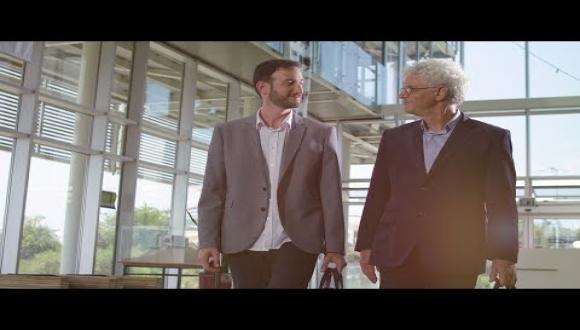Basic Steps in Computer Science and Python Programming
מאלגוריתמים ועד ביטים, מחיפוש מידע ועד עיבוד תמונה, מהצפנות ועד גרפים: בקורס תחשפו לכמה מהרעיונות היפים והחשובים בעולם מדעי המחשב ותתנסו בכתיבת קוד בשפת התכנות הפופולרית פייתון (Python)
מרצים: ד"ר אמיר רובינשטיין, פרופ' בני שור ז"ל
About the course:
How do computers work? What are they made of? Computers are part of our everyday life, yet most of us barely understand how to use them beyond their basic functions.The course explains some of the most important notions and theories in computer science. We want to give everyone a first glimpse into the ideas behind the world of Computer Science and coding, and to experience in Python.
About the lecturers:
Prof. Benny Chor is the head of the School of Computer Science at Tel Aviv University. His research interests have spanned cryptography and randomness, distributed computing, computational biology, and Computer Science education. He has designed the courses Introduction to Modern Cryptography, and CS1001.py – an extended introduction to Computer Science, at Tel Aviv University, as well as Teaching Computer Science in the Community, a program in which university students teach Computer Science ideas to kids from Israel’s cultural and economic periphery. He was awarded the excellent lecturer prize, both at the Technion and at Tel Aviv University. He has supervised 8 Ph.D. students and 23 M.Sc. students.
Dr. Amir Rubinstein is a faculty member at the Computer Science school at Tel Aviv University. His main interest areas are computer science education, innovation in teaching, and incorporating computational thinking in other academic disciplines. He received his B.Sc. and M.Sc. in Computer Science and Bioinformatics from the Technion in Israel, and his Ph.D in Computer Science from Tel Aviv University. Amir has more than 15 years of teaching experience in various Israeli universities and colleges. He won teaching prizes at the Technion, Tel Aviv University, the Open University and Ort Braude College. He designed some new courses, including "Computational thinking for Life Scientists", and a recently developed MOOC "First steps in CS and Python programming".





